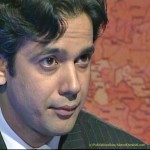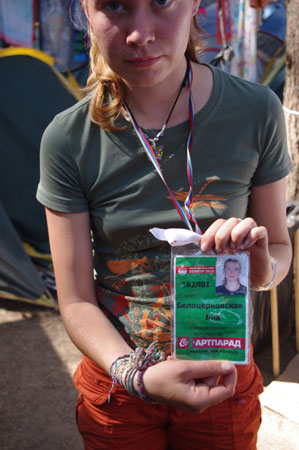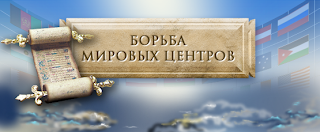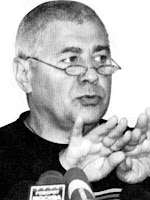Demography is one of Eurasia’s key topic. Within the Eurasian continent, which can be separated into two sides, the ‘European’ side and the ‘Asian’ one, the demographic gap is becoming obvious: the Asian side contains nowadays more than 50% of the world citizens while the European side contains less than 10%.
Russia is now facing a really harsh demographic situation, but as opposed to the west-European countries facing those difficult decades without solving the problem (using a quiet uncontrolled immigration), Russia seems to prefer a Japan’s like solution to a France’s like solution.It is very common in the lot of propaganda and disinformation we are being given by the mainstreams concerning Russia to read / hear that the country is losing 700.000 citizens every year and is engaged in a demographic decline that will last for decades. A recent World Bank and even a UN report ensure that the Russian population should shrink by 30% and probably reach only 100 million in 2050 (!), from its actual 141,9 million (2010).
As we shall see, this is absolutely absurd and will not happen.
The Russian demographic evolution, from 1897 to 1991
Looking at the Russian demographic evolution from 1897 to 2009 is very instructive. The analysis is based on the population «inside» the borders of the present Russia, in the Empire of 1897 but also in the USSR. The figures are given as of 01 January of the quoted year:
* In 1897, the population was 67.5 million and in 1914, 89.9 million.Increase over 17 years: 22,235,000 inhabitantsAverage increase of 1.315 million inhabitants / year.* In 1939, the population is 108.4 million and reach 117.2 million in 1959.Increase over 20 years: 8.8 million inhabitants.Average increase of 440,000 persons per year. The average is obviously lowered by the dramatic events in Europe, during which the USSR has lost nearly 23 million citizens (military and civilian
* In 1959 the population was 117.2 million and about 130.6 million in 1971.
Increase over 12 years: 13.4 million inhabitants.Average increase: 1.115 million inhabitants / year.
* In 1971, the population is 130.6 million and 148.3 million in 1991.Increase over 10 years: 17.7 million inhabitants.Average increase: 1.77 million inhabitants / year.
Of course in 1989 Russia was the center of the USSR.
The population of the USSR in 1992 amounted to 292 millionsagainst 148 million in Russia the same year. One can clearly discern that the strongest grothw of population was the within the USSR after 1970, during the last 20 years of existence of this political entity.
Strangely (?), in 1989, the population increase is slowing down.
— From 1983 to 1989 the population increased from 7 million in 7 years, 1 million / year.
— From 1989-1996, the population increased from 1.6 million in 7 years (!) is 228,000 inhabitants / year.
The demographic collapse, 1991 – 2005
After the fall of the Soviet Union, Russia lost almost half its population. 30 million Russians, residents in the Russian republics (that became independent nations) were excluded from the general «census» of 1990 which counted 149 million inhabitants.
The fall of the USSR and the social and economic collapse led Russia to a giant economic crisis. Drastic measures of reformers / liberals in the entourage of President Yeltsin were the main causes of this demographic collapse. The drastic therapy of Yegor Gaidar and Anatoly Chubais led to an economical collapse wich led to a demographic genocide. This happened very fast, tooking only a large decade.
Between 1990 and 1995 the infant mortality rate raised from 56% and the rate of female mortality by 26%. The male life expectancy fell from 64 y.o. in 1990 to 57 y.o. in 1995, leading to a situation where the Russians then lived less long than the Indonesians. Female life expectancy dropped from 74 y.o. to 70 y.o.
Between 1990 and 1995, « excess deaths » was three million people, which is twice the excess deaths of the Russian civilians during the Second World War, due to the difficult living conditions.
The collapse of Russia from 1990 to 2000 could be compared to the demographic collapse of Ethiopia during the famine of 1980 or cambodia Pol Pot …
The demographic collapse first struck the elderly and then the youth. It struck with full force the Russian hospital system. Russia experimented a resurgence of diseases that existed in many countries of the third world: diphtheria, typhus, cholera, typhoid fever and also tuberculosis, hit the population hard.
In 1995 the estimation was that one inmate out of ten was contaminated. Each year, according to the Harvard Institute of Statistics and the Institute of Public Health of New York, between 1990 and 1996, Russian jails relaxed some prisoners carrying 30,000 active strains and 300,000 carrying dormant strain.
If nothing had been done, 12% of the population could theorically have been infected in 2005.Between 1990 and 1998, sexually transmitted diseases soared.
The number of recorded syphilis rose from 8,000 to nearly 400,000.
AIDS literally exploded, if the 90’s pace of expansion had continued, 10 million of people would have been infected in 2005 (Note from Alexander Latsa: It is estimated that 500,000 people in 2009 are infected with AIDS virus).
This explosion of AIDS spread was also largely due to drugs. In comparison with the5 million of addicts in the country in 1998 (3% of the population), this figure had since then been «reduced» by half.
If young people took drugs, older strongly drank. A 1998 survey showed that 50% of men drank an average of more than half a liter of vodka a day. Between 30,000 and 40,000 people died each year of poisoned vodka.
Between 1990 and 1998, were counted: 259,000 suicides, 230,000 deaths from poisoning (of Vodka), and 169,000 murders.But mostly, the more Russians died, the less were born. In the late 1990s, there were about 3,000,000 abortions / year in Russia, and around one milion birth.
The main Russian Statistical Institute estimates that in the late 1990s, more than one adult woman in three was sterile and had two reproductive disorders.
This lack of female fertility was increased by the rise of prostitution in Russia but also abroad. The high emigration of men to foreign countries was largely followed by the high number of women who became (by force generally) sex slaves, especially in Western Europe. In 1993, out of 1.6 million birth, 5% of newborn were abandoned by their relatives. In 1998, it had risen for 1.3 million birth to a rate of 9%. I
]n 1998, one million children roamed the streets. In the end, the recent wars have dealt a blow to the young male generation, especially the first Chechen war in 1995, where thousands of young unprepared conscripts were sent to carnage
.All this led to an inexorable population decline. Russia lost seven million people in less than 20 years. The cruising speed was launched quietly with about 400 000 people less each year ! The political power, in total decomposition, proved its incapacity of doing anything. If nothing would have changed during this last decade, the number of young people aged 15-24 should be reduced by half in 2015.
Such a « fall » is the only historical example in peacetime.
Gosplan : toward demographic’s balance (2005 – 2009)
By 2004, the year of his second term, Russian President Vladimir Putin launched a federal initiative designed to restore the population’s demography.
The plan included a series of measures to help the birth rate and help young couples to make a second or a third child. Some measures include financial help, from state, companies or local government but also aid and housing credits or vouchers for purchases in department stores. Some regions gave young families loans for house purchase, which may be «erased» during the birth of children, and provide tax advantages or even measures of «clemency» for late rent. In addition, the state launched a massive media campaign to appeal to «have children for the motherland.»
The results were really fast, as the population’s evolution is showing. Within 5 years, the decline was stopped.
— 01 January 2002 —>145,2 millions
— 01 January 2003 —> 145 millions
— 01 January 2004 —> 144,2 millions
— 01 January 2005 —> 143,5 millions
— 01 January 2006 —> 142,8 millions
— 01 January 2007 —> 142,2 millions
In 2005, loss of population reached 780.000 people.
In 2006, loss of population was around 600.000 people.From 2002 to 2006 the loss of population was 2.400.000 people, meaning a yearly average of 600.000 pepole (!), to compare with the increase from 1 million from the 1970-1990’s period.However things then got better :
— 01 January 2008 —> 142 millions
— 01 January 2009 —> 141,9 millions
— 01 January 2010 —> 141,9 millionsIn 2007, the population fell by 300,000 soIn 2008, the population then declined 100,000In 2009, the population has for the first time in 15 years increased in Russia.
This curve shows the Russian demography. The first vertical bar is the fall of the USSR and the second is the the establishment of demographic measures by the Russian state. This increase of births concerned 70 territories of the Federation and the reduction of deaths concerned 73 territories out of 83.
The natural increase in population was registered in 25 territories in 2009 against 21 in 2008 still according Rosstat. Siberia was the symbol of demographic rebirth, as between 2000 and 2009 its birth rate has increased sharply: 98,000 children were born in Siberia and 174,000 in 2009.
According to Russian Minister of Health and Social Development Tatyana Golikova demographic stability is mainly due to the increase of births:
1,760,000 Russians were born in 2009, that is to say more than 2, 8% than in 2008: 1.714 million.
The Minister also stressed that mortality remained high, 1.95 million people in 2009. The mortality rate is also down from 14.2 / 1,000 in 2009, cons 14.6/1.000 in 2008. The combined effect «decline in mortality + higher birth rate » is constant for four years. In addition, the average life expectancy is increasing, from 69 countries in 2009 against 65 in 2000, today it is 62 for men and 74 for women.
Now, demography is entering its second phase, the first having been the revival of the birth rate. This second phase is to reduce mortality, as a lower mortality rate of 5% over 5 years (until 2015) is considered necessary if the current birth rate remains more or less stable.
The objective of this second part, is to stabilize the population around 142 million inhabitants by 2016 through two main steps that are lower abortions and reduced mortality:
— Lower aborptions
Russian’s age pyramid is showing an unavoidable reduction in the number of young women aged 20 to 29 (procreation age), that should reach 35% by 2020. To deal with this problem, the Russian Ministry of Health wants to reduce the numbers of abortions, which is one of the highest in the world. In 2008 1.714 million birth, were recorded in Russia and 1, 234,000 of abortion, a rate of 72 abortions per 1000 births, to compare to 20 abortions per 100 births in 2008 to the United States.
According Tatyana Golikova, a drastic reduction in the rate of abortion is essential in order to try solving this problem. Nevertheless, the abortion rate is falling consistently and never reached the heights or other countries such as Romania.
However it is true that the number of childrens under 18 went from 38 millions in 1995, to 33,5 millions in 2000 and 26,5 millions in 2008.
— Reduce mortality
The mortality rate is too high (read here repartition), several areas are covered:
* cardiovascular disease: down 4.6% in 2009 compared to 2008.
* The decline of deaths caused by tuberculosis: 7.8% decline in 2009 compared to 2008.
* The lower rate of road deaths is already evident in 2009 the police recorded 26,084 deaths throughout the federation, 33 308 deaths in 2007.
* The fight against drug deaths: 70,000 deaths / year in 2008 are related to drug use and 30-40000 directly from overdoses. Russia counted as many consumers of narcotics than Western Europe.
* The struggle against death due to alcohol: the mortality due to intoxication with alcohol adulterated already decreased by 32%.
The government in the health plan of 2020 as the target of halving the per capita alcohol consumption in 10 years, alcohol was responsible indirectly for the deaths of 500,000 people per year. However, the natural population decline continues but depopulation was offseted by the increase in migrants. According to data provided by the Federal Migration Service, in eleven months during the year 2009, the Russian citizenship was granted to foreigners 333.474.
Since 1999 (the end of Yeltsin’s term), the rate of emigration of Russians (or departure from Russia) is in constant decline, emigration reached 250,000 people per year in 1998 and 1999 but fell in 2008 to less than 20,000 person. In comparison the rate of arrivals, after dropping in 1998 to about 500.000 fell in 2004 to around 120.000.
Then in 2007 it bounced back to about 280,000 people. From 1990 to 2008, immigration to Russia totalized 5,347,027 people.
Not all stayed, but migration service says that would have remained in Russia 4,168,980 person or around 75%. This corresponds to an average net inflow of 231,610 persons per year. I would like to remind that the population of Russia is 142 million and also that these immigrants are 90% of CIS countries as can be seen here. From 1992-2007, the bulk of immigration to Russia consisted of ethnic Russians returning from former Soviet republics to 65% and 11% of citizens of various minorities in Russia, 24% are migrants from other origins.
In 2003, the share of ethnic Russians was 65%, and Slavs (including Ukraine and Belarus) 72%.In 2007, the share of Slavs decreased to 50%, the share of nationals in the Caucasus has increased by 9-21%, and Central Asia 4-14%. The Center surveys GKS gives us a detailed breakdown of the immigration through the entries for the years 2003-2008, but also throughout the territory of the federation.
Illegal immigration by cons is a different problem, in the words of Vladimir Putin in 2006: «The number of illegal migrants in Russia could reach $ 15 million. It’s more than in America and Europe taken together …
According to current estimates, there are 500,000 people registered on the 10 million foreigners working in our country. 10 million is not a final figure because « nobody knows exactly how much they are at work here ». In 2008, according to figures from the Federal Immigration Service (FMS), there were 9.2 million foreign citizens in Russia, 80% would come from a country of the CIS. Of these 9 million, two thirds worked illegally.
Demography in Russia in 2010
The first half of 2010 is quite positive, the number of births (868,936) is 2.3% higher than during the same period in 2009 (849.267), with 19,569 births more.
Mortality significantly decreased with a fall of 1.8% between S1 2010 (1,010,988 deaths) and the H1 2009 (1,029,066 deaths) so 18,078 fewer deaths. The loss of population during the first semester of 2010 is 142,152 inhabitants, against a loss of 179,799 inhabitants for the first semester of 2009. On the comparative six first months of both year, deaths from cardiovascular disease fell by only 2% and deaths from cancer of 0.7% only. Death for « external reasons » also reduce for 6.1%. Within this group, road deaths, poisonings, suicides and murders fell by 10-15%. For the first time since 1998, the number of deaths in 2010 «Should» be less than 2 million. (Links).This year, it is possible, without being to much optimistic, to say that the population should grow maybe by 100.000 people.
Russian’s demography, previsions from 2010 to 2030
Three major demographic projections have been considered for the population until 2030, by the Russian’s health ministry.
A low projection considers that the population should continue to decrease, to reach 139.630.000 inhabitants in 2016, the rate of decline should reach a medium yearly 500.000 person until 2015, and then top to 700.000 / year until 2030, where the population should stabilize around 128.000.000, with a very low immigration rate around 200.000 people / year, which represents from 2010 to 2030 less than 4% of the population from 2030.
A medium projection sees the population growth until 2016 as reaching 142.160.000 inhabitant and then reducing 200 or 300.000 / year to reach 139.730.000 in 2020. Immigration would be more consequent than in a low projection: around 350.000 /year. For memory, in 2009 334.500 citizens received the Russian nationality.
A high prevision considers that the growth of population will lead to 144.000.000 citizens in 2016 and then 148.000.000 in 2030. In this prevision, immigration would be stronger, at around 475.000 / year, but that remains relatively weak, leading after 20 years to less than 8% of population, which is a « normal » actual European’s rate.
However the big difference is that within those potential 8% should be a strong proportion of Russian speaking people, and even ethnic Slavians from Ukraine / Baltic countries… which means people from non destabilizing communities, unlike in western Europe.










